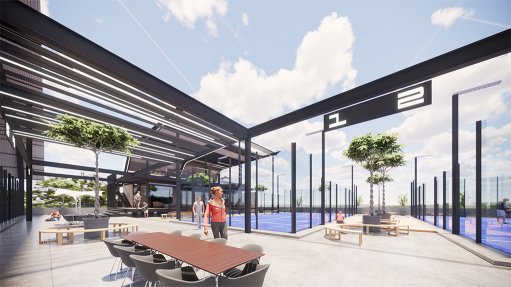Fuel Price Trends and Forecast White Paper – Updated April 2015
This article has been supplied as a media statement and is not written by Creamer Media. It may be available only for a limited time on this website.
Company Announcement - Although Botswana’s energy requirements are dominated by petrol fuels, the country does not have any petrol reserves and has to import all required petroleum in refined form from neighbouring South Africa. In addition, the country does not have connections to regional petroleum pipes and thus is totally dependent on South Arica in terms of supply and logistics. It is vital that Botswana secures a more cost effective alternative fuel supply and one of the proposed solutions is that the Government establishes a state owned Oil Company. An investigation into the feasibility of this solution is currently underway and we will keep you informed of developments in due course.
Pricing of Petroleum Products
The Ministry of Minerals, Energy and Water Resources coordinates the operation of the oil industry. They regulate fuel price stability through monitoring and monthly setting of petroleum prices while at the same time ensuring that the oil industry remains profitable and sustainable. A price build up is based on assumed landed cost. Landed costs refers to the total cost of shipped product, which includes the purchase price, freight, insurance and any other costs up to the port destination. Any international oil price change directly impacts Botswana fuel prices. Given the fall in oil prices since the beginning of the year, the MMEWWR decided to reduce the Pump fuel price by 1 Pula on all petrol products on 6 April 2015. The current petrol price is P7.96 and the current diesel price is P8.05 .
Botswana Fuel Demand
A study from the Department of Energy in 2007 predicts that the current fuel demand in cubic meters on both petrol and diesel will increase by 44% from 2015 to the end of 2025. The annual increase is based on the GDP growth rate of 6% per annum.
Source: Department of Energy, 2007
The main suppliers of fuel in the country are as follows:
• SHELL
• ENGEN
• BP
• CALTEX
• CFP TOTAL
• SASOL
It is interesting to note that the Government has ensured adequate fuel storage facilities for the various suppliers to ensure adequate supply and to eliminate price fluctuations based on shortage.
Botswana Fuel Pricing
Figure1: Botswana Annual Fuel Price 1998 - 2015
Source: World Bank
Diesel is clearly subsidised by the Botswana Government –although Botswana imports all its refined diesel it is still cheaper than South African diesel which supplies the fuel.
Source: World Bank
Similarly it is apparent that petrol is also subsidised by the Government.
The significant drop in the fuel price is largely due to:
• The focus by OPEC producing countries on increasing their market share
• Slow and deteriorating EU economies and the slowing of Asian economies, leading to a significant reduction in demand levels
• Significant growth in the U.S. domestic crude oil production
As a result there is an oversupply of Brent crude oil in the market, and prices have dropped accordingly.
There is uncertainty on how long this situation will continue and oil prices have once again increased to $61 per barrel.
Botswana Currency. However a factor in Botswana’s favour is the strength of its currency. The Botswana Pula is currently significantly stronger than the South Africa Rand (1U$/9.6637 BWP) (1U$/11.8216 ZAR) which results in reduced fuel prices for fuel imported from SA.
Source: www.oanda.com
Additionally, the pula has been reasonably steady against the dollar, showing only a 17% depreciation in the past two years.
The Future
Given the current situation, and taking into account the Brent Crude Oil predictions and currency exchange factors, we anticipate that the Botswana fuel price will increase between 6 – 7% until December 2015. We therefore recommend that an annual inflation of at least 7% is budgeted for fuel in 2015. We would also recommend that you review your fleet mix and operational costs at least every two years to ensure you optimise cost and efficiency within your fleet. Should you require any assistance in this regard, please contact the Fleet Consulting team directly or via your account manager.
Comments
Announcements
What's On
Subscribe to improve your user experience...
Option 1 (equivalent of R125 a month):
Receive a weekly copy of Creamer Media's Engineering News & Mining Weekly magazine
(print copy for those in South Africa and e-magazine for those outside of South Africa)
Receive daily email newsletters
Access to full search results
Access archive of magazine back copies
Access to Projects in Progress
Access to ONE Research Report of your choice in PDF format
Option 2 (equivalent of R375 a month):
All benefits from Option 1
PLUS
Access to Creamer Media's Research Channel Africa for ALL Research Reports, in PDF format, on various industrial and mining sectors
including Electricity; Water; Energy Transition; Hydrogen; Roads, Rail and Ports; Coal; Gold; Platinum; Battery Metals; etc.
Already a subscriber?
Forgotten your password?
Receive weekly copy of Creamer Media's Engineering News & Mining Weekly magazine (print copy for those in South Africa and e-magazine for those outside of South Africa)
➕
Recieve daily email newsletters
➕
Access to full search results
➕
Access archive of magazine back copies
➕
Access to Projects in Progress
➕
Access to ONE Research Report of your choice in PDF format
RESEARCH CHANNEL AFRICA
R4500 (equivalent of R375 a month)
SUBSCRIBEAll benefits from Option 1
➕
Access to Creamer Media's Research Channel Africa for ALL Research Reports on various industrial and mining sectors, in PDF format, including on:
Electricity
➕
Water
➕
Energy Transition
➕
Hydrogen
➕
Roads, Rail and Ports
➕
Coal
➕
Gold
➕
Platinum
➕
Battery Metals
➕
etc.
Receive all benefits from Option 1 or Option 2 delivered to numerous people at your company
➕
Multiple User names and Passwords for simultaneous log-ins
➕
Intranet integration access to all in your organisation





















